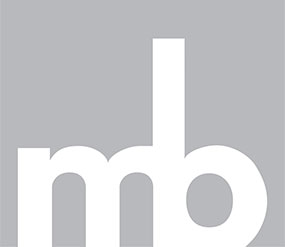I have seen several articles in the news relating to the patent waivers for the Covid-19 vaccines. For example, one recent headlines states “3 Million People Have Died of Covid Since Rich Nations Began Obstructing Vaccine Patent Waiver.” CNN stated that “US President Joe Biden’s administration said Wednesday it would support the easing of patent rules on Covid-19 vaccines, potentially expanding global supplies.” Apparently, these waivers were initially proposed by South Africa and India in May.
But is a patent waiver really what is being sought by South Africa and India? Potentially, but it is unlikely that patent protection is really what is keeping South Africa and India from getting the vaccine. It is more likely that the trade secrets required to manufacture the vaccines is what is keeping South Africa and India from getting the vaccine. Accordingly, some of the media coverage regarding vaccine waiver fails to recognize the most important IP rights involved in the Covid-19 vaccines.
Why is it unlikely that patent rights are keeping South Africa and India from getting the vaccine? It is because South Africa and India are sovereign nations that grant patent rights themselves. It is the South African government, not the United States Government, that decides whether to grant or enforce patent rights in South Africa. If they chose to, South Africa and India could deny any party patent rights for the Covid-19 vaccine in their countries. It is true that this could get South Africa and India into trouble with respect to some of their trade treaties, but the fallout from that seems insignificant compared to the ability to get the vaccine quickly. Additionally, the vaccine has only been recently developed, and it is unlikely that there is a patent covering any of the vaccines in South Africa or India. Normally, it takes at least 3-4 years, or potentially much longer, between the filing of a patent application in the US and the grant of a patent application in India or South Africa. I personally did a patent search in the United States Patent and Trademark Office’s database and did not find an issued US patent covering any of the Covid-19 vaccines (although it is possible that I missed it). Thus, it is my belief that a patent waiver is not really what South Africa and India were seeking.
So what do these countries really want? The term “intellectual property right” really encompasses patents, trademarks, copyright, and trade secrets. Trademarks cover brands, but they provide no protection against copying a vaccine. Copyright protects creative works, but not vaccines. The only remaining IP right is trade secret, and I believe that it is trade secrets that India and South Africa are really after.
A trade secret is valuable information that is kept secret by the party owning the information. The value in the trade secret is in the fact that it is not known by others. The classic example is the formula for Coca Cola®. Since none of Coca Cola’s® competitors know its formula, they cannot copy the beverage. The vaccine has two potential “types” of trade secrets: those that are included in the patent application and those that were not.
A patent application is required to disclose how to make and use the claimed invention. For a Covid-19 vaccine, this means that a person skilled in the art would need to be able to make and use the claimed invention without undue experimentation. The information in a patent application is kept secret for 18 months, or until the application issues as a patent, whichever occurs first. Eighteen months ago, in February 2020, and Covid-19 was just becoming a pandemic. Thus, the patent application for the vaccine had not yet been filed. Indeed, the vaccine had not yet been invented. More likely, the first patent applications were likely filed about a year or so ago. Thus, it may be another four to six months before the vaccine patent applications are publicly available. It may be that South Africa and India are seeking to obtain copies of the patent applications before they become publicly available.
Additionally, the Covid-19 vaccines are “biologics,” meaning drugs that are a protein, an amino acid, or some other large biomolecule. Biologics are notoriously difficult to copy, even with the information in a patent application. The little details around making the vaccines, what the patent law would not require in a patent application because it is “routine experimentation,” can take months or years to work out. Thus, these little details, also called “know how,” will be valuable trade secrets for some time after the patent applications or patents are publicly disclosed. It is likely that the “intellectual property rights” sought by South Africa and India include this know how.
As a patent attorney, I find headlines like “3 Million People Have Died of Covid Since Rich Nations Began Obstructing Vaccine Patent Waiver” troubling because they cast patent protection in a bad light. In reality, it is highly unlikely that patent rights have anything to do with access to the vaccine in South Africa or India at this point in time. To be more accurate, the media should be saying that South Africa and India are lobbying the WTO to compel Pfizer, Moderna, and other vaccine makers to disclose how to make the vaccine, and potentially provide technical support in the effort. Whether that is better or worse is a matter of personal opinion, but there is no denying that what is being sought is very different from what is being reported by most media sources. I hope those making the policy have a better understanding of these questions than what is being provided by the media.
Reprinted with permission of the Orange County Business Journal
